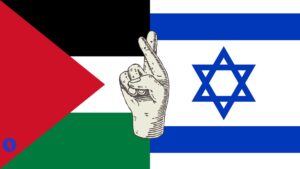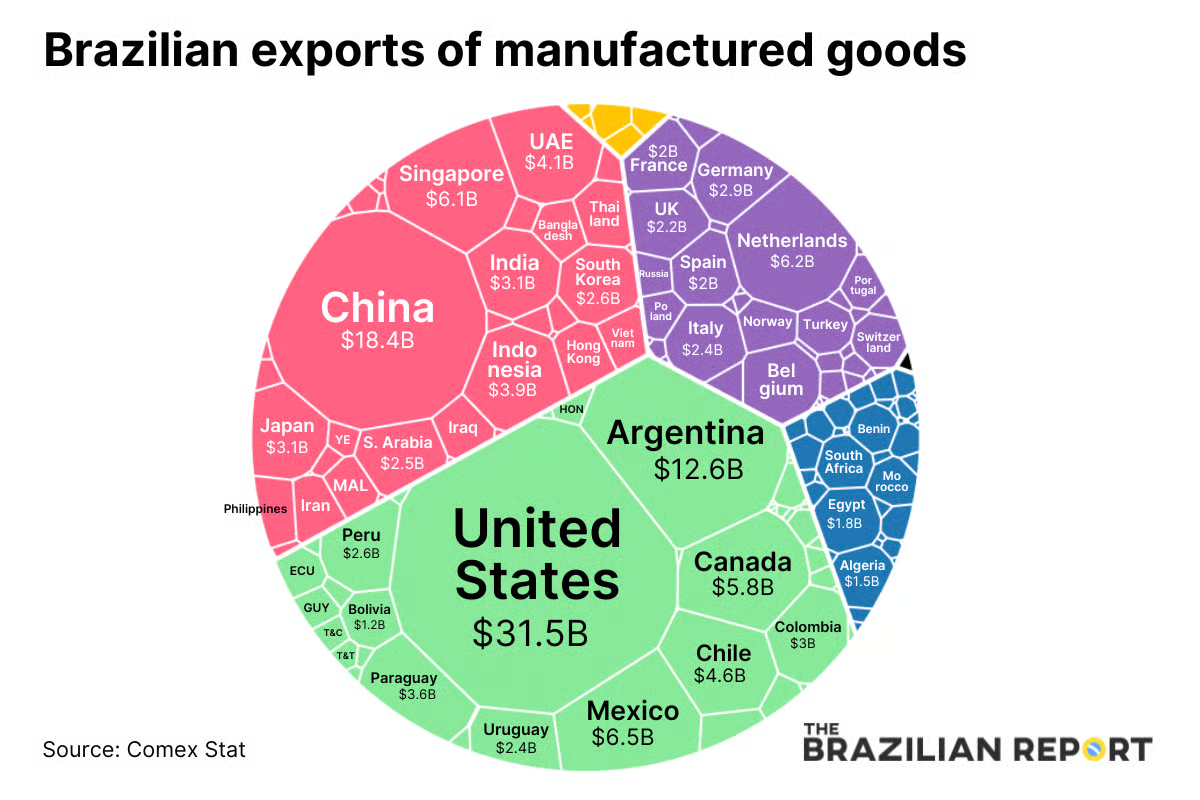This article is a cross publication from The Brazilian Report.
After months of fear and anticipation, US President Donald Trump announced additional 50% tariffs on all Brazilian exports to the United States, to be enforced on Aug. 1.
The letter to President Luiz Inácio Lula da Silva of Brazil stood out among the batch Trump sent to multiple trading partners last week. There was no rosy language about the “strength and commitment of our trading relationship.” Instead, Trump justified his move by accusing Brazil of staging a “witch hunt” against Jair Bolsonaro — his right-wing ally, who is about to face trial for allegedly attempting a coup in 2022.
“This trial should not be taking place,” Trump said. “Due in part to Brazil’s insidious attacks on Free Elections, and the fundamental Free Speech Rights of Americans … we will charge Brazil a Tariff of 50% on any and all Brazilian products,” he added.
Stay on top of your world from inside your inbox.
Subscribe for free today and receive way much more insights.
Trusted by 145,000+ subscribers
No spam. No noise. Unsubscribe any time.
As for Lula’s response…. The Brazilian leader struck a defiant tone, in two televised interviews, framing Trump’s decision as a brazen assault on Brazil’s sovereignty. “There are things a government cannot accept, such as the interference of one country in the judiciary of another,” he told leading evening newscast Jornal Nacional.
Still, Lula said the government will not take any retaliatory measures until the levies are actually enforced. In the meantime, he will convene business leaders from vulnerable sectors — notably aerospace, steel and fruit juice — to explore alternatives. Oh, and call up the World Trade Organisation to launch a complaint.
With declarations that may have been more directed at a domestic audience, Lula suggested that Trump would have faced prosecution had the Jan. 6, 2021 attack on the US Capitol occurred in Brazil. Indeed, some observers — such as Senator Adam Schiff, a Democrat from California, echoed this perception.
👉 Why it matters. The Brazilian government thinks the United States is — in a conspicuously public manner — butting in on Brazil’s domestic politics. The repercussions of Trump’s intervention remain deeply uncertain and could risk 200 years of bilateral relations between the two countries.
Here’s a brief timeline of deteriorating Brazil-US ties in 2025:
- February: Trump’s company and Rumble sue Justice Alexandre de Moraes, who oversees investigations into online disinformation networks and has sought to block accounts belonging to far-right radicals.
- March: Congressman Eduardo Bolsonaro moves to the US to seek support from the Trump administration against Brazilian federal law enforcement. His father, Jair Bolsonaro, faces trial for attempting a coup in 2022 — and the very public manner in which he sought to undermine democracy means there is a wealth of evidence against him.
- May: US Secretary of State Marco Rubio says there is a “great possibility” the US will impose sanctions on Justice Moraes under the Global Magnitsky Act.
- June: Brazil’s Supreme Court rules to hold social media platforms more accountable for user-generated content, to the great despair of Big Tech.
What about the economic fallout?
The impact on industry was quickly felt:
- Brazilian planemaker Embraer lost close to 10% of its market value after Trump’s announcement, facing $1.8B in potential costs.
- Steel, orange juice and coffee are bracing for cascading impacts.
– Pharmaceutical companies worry about the prospect of Brazil suspending US patent rights
But some commentators minimized the potential impact of Trump’s move by pointing out that exports to the US make up “just” 2% of the Brazilian GDP.
Granted, Brazil is not nearly as US-dependent as Mexico, but the US remains Brazil’s top customer for manufactured goods, and many industrial segments had reason not to sleep last night.
Certain sectors — steel, aluminum, copper — were already facing tariffs. While the impact had not fully materialized, these products were already subject to 50% duties, meaning that any additional 50% would virtually price Brazilian producers out of this key US market.
“Turning to agriculture, Brazilian coffee stands to suffer considerably, along with other products that face competition from alternative suppliers,” Welber Barral, a trade consultant and former Brazilian trade secretary, told The Brazilian Report. “Sugar, for instance, already bears hefty tariffs and could be hit even harder. The same goes for beef, whose exports to the US have surged in recent years.”
Lobbies representing agribusiness and industries urged the Brazilian government to “preserve the relationship with the US” and negotiate its way out of the tariffs.
Back in April, the Brazilian Congress passed legislation nicknamed the “Retaliation Bill,” giving the government broad powers to respond to trade barriers, including suspending intellectual property rights.
But the truth is that retaliating is no simple matter for Brazil. The country imports a significant volume of inputs and equipment from the US, and much of that is exempt from tariffs. Slapping duties on these goods would ultimately harm Brazilian industry and disrupt domestic supply chains (not to mention the effects on inflation).
“Our estimates suggest that if lasting and under no major retaliation, these tariffs could have a negative impact of 0.3 to 0.4 percentage points of GDP,” Goldman Sachs wrote in a note to clients. “Retaliation would generate a larger negative impact on Brazilian activity and inflation.”
Another risk for the economy is the expected run against the Brazilian real, which already lost more than 1% on Wednesday. The Ibovespa stock index dropped 1.3%, while Embraer ADRs traded in the US crashed by 4%.
And what about the impact on domestic politics?
The Bolsonaro clan has taken the surprising position of fully embracing ownership for Trump’s threats. Two of the former President Jair Bolsonaro’s political sons — Flávio (a senator) and Eduardo (a congressman on leave) — said the only way out of a trade war is granting amnesty to his father and others accused of attempting a coup d’état in 2022. Bolsonaro will soon face trial for his role in a putschist plot, and many believe he cannot escape a conviction.
The Trump tariffs put Bolsonarismo at a curious crossroads, perhaps forcing it to relinquish banners of nationalism, and leaving it vulnerable to criticism for a perception that the former president’s inner circle may be putting America first, ahead of Brazil.
Brazil has often complained that it gets overlooked by the US. The first wave of Trump tariff threats were largely indifferent toward the country, a situation that has certainly changed now. Is being on the US radar all that it’s cracked up to be?
Want to stay up to date with all things Brazil? Check out The Brazilian Report here!









